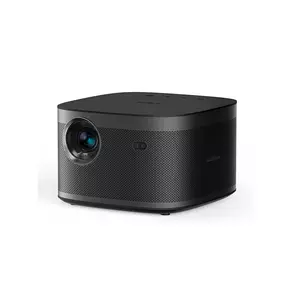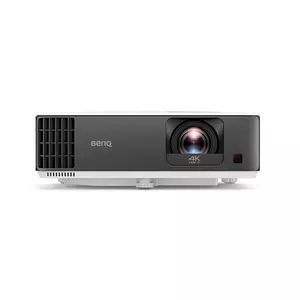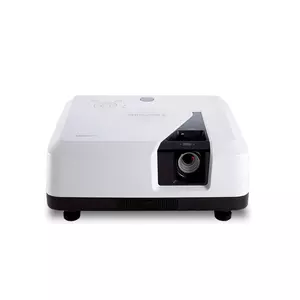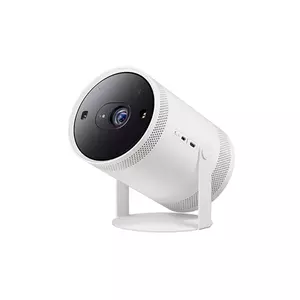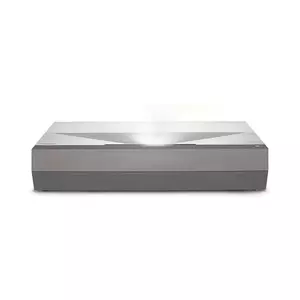Laser Projector vs TV
It can be difficult to know the differences between a laser projector and a traditional TV. Nowadays, more and more people are considering ditching their standard TVs and opting for something else - like a home theater with a desktop or ceiling-mounted laser projector.
But what exactly is the difference between these two types of displays? In this article, we'll discuss how laser projectors compare to TVs in terms of image quality, sound, cost-effectiveness, convenience, and many other parameters!
If you want to enjoy an exciting movie at home or are looking for ways to develop your gaming hobby without draining your wallet, then this article definitely deserves your attention.
- Laser Projector vs TV
- Laser Projector or TV: Comparative Table
- Detailed Overview - Laser projector vs TV: Differences and Similarities
- Advantages and Disadvantages of a Laser Projector
- Advantages and Disadvantages of a TV
- FAQ about 4K Laser Projector vs Oled TV
Laser Projector vs TV
Laser projectors have become more popular in the past few years because they can produce bright and clear, large-sized images, making movie watching more enjoyable. They are suitable for outdoor movie nights, and the latest models have 4K resolution and HDR features..
OLED TVs are renowned for their superior picture quality due to their vibrant colors and deep blacks, making them perfect for watching movies and playing video games. Additionally, you can use TVs in any room and for everyday use, without worrying about having enough space to enjoy your favorite shows and movies.
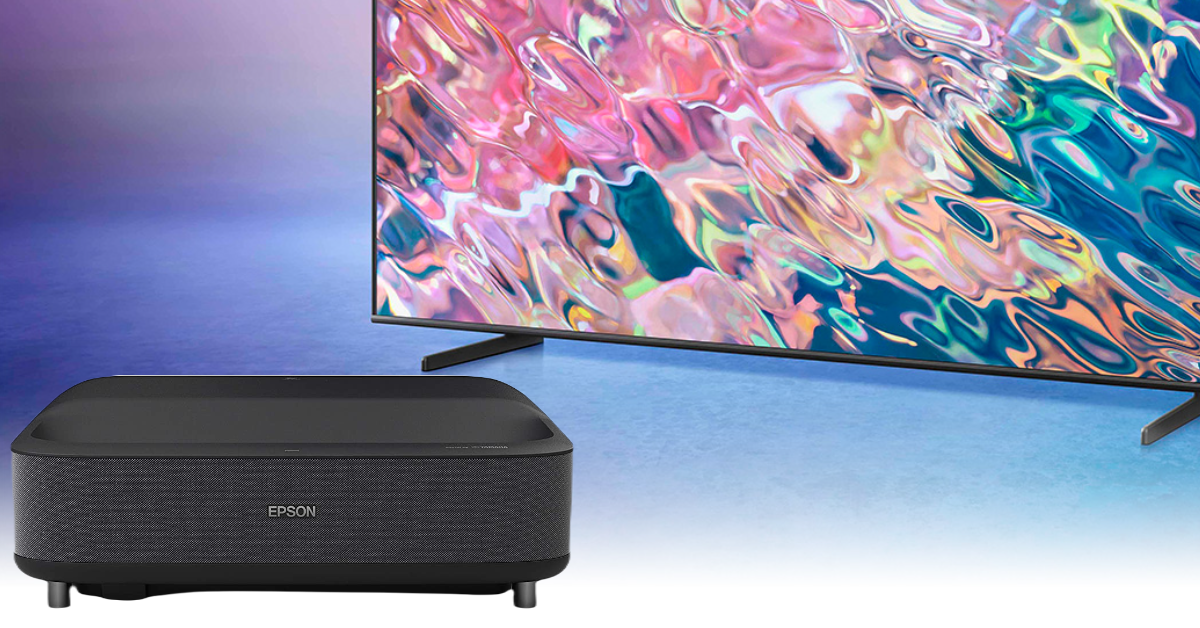
Laser Projector or TV: Comparative Table
Here is a comparative review of laser projectors and TVs:
| Feature | Laser Projector | TV (OLED) |
|---|---|---|
| Picture Quality | Large, bright, clear image | Deep blacks, vibrant colors |
| Resolution | 4K and up | 4K and up |
| Screen Size | Can project a massive image onto a wall or screen | Limited by screen size |
| Price Range | High-end, expensive | Available at a range of prices |
| Placement | Requires dedicated space for optimal viewing | Can be used in any room |
| Versatility | Best for creating a home theater experience | Great for everyday viewing |
| Audio | May require additional sound system for optimal sound | Built-in speakers or can be connected to soundbar/home theater system |
Laser projector vs TV: Differences and Similarities
Let's take a closer look at their differences and similarities.
Size
Previously, TVs lagged far behind projectors in terms of screen size, but today the gap has narrowed considerably. Now you can buy a TV with a diagonal of 85 inches. But still, projectors can project up to 120 inches, and some up to 300 inches, and this is where they win over TVs.
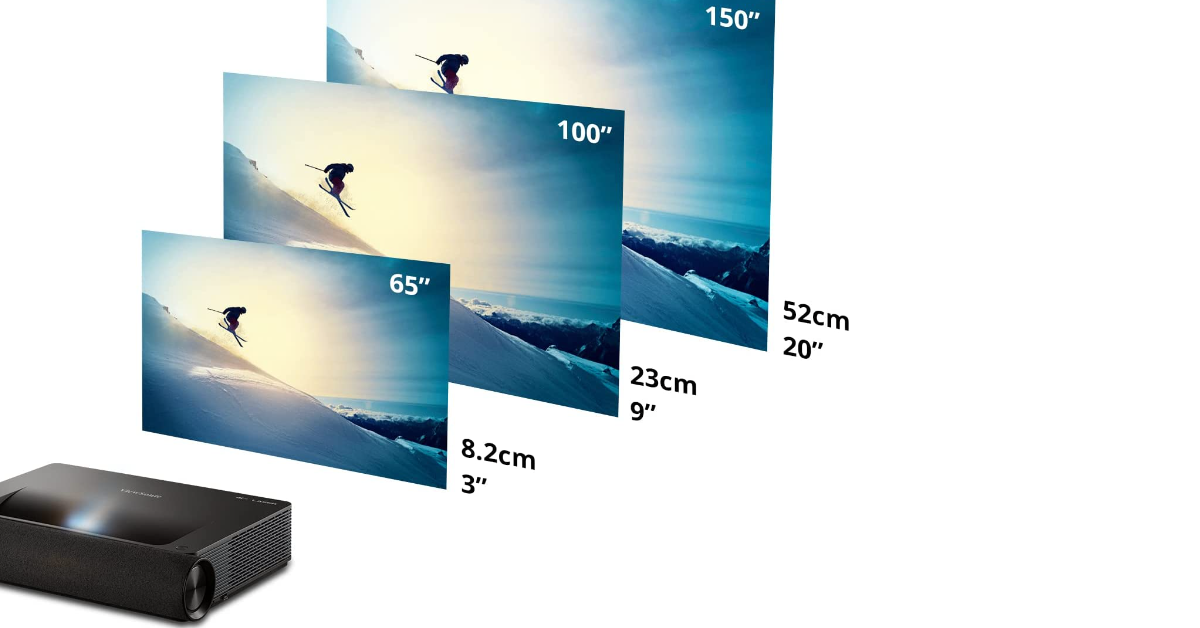
Brightness
When choosing a projector, it's important to consider brightness because it affects the perception of contrast depending on the darkness of the room. For example, the more light there is in a room, the higher the brightness required to prevent image blurring. However, high brightness levels can quickly add to the cost of a projector. But it can also give you an advantage when viewing in bright indoor and outdoor environments.
QLED and OLED displays can easily deliver higher brightness than most modern laser projectors, but may be inferior in very bright rooms. QLED TVs offer improved color accuracy and wider viewing angles, while OLED TVs offer better contrast and black levels.
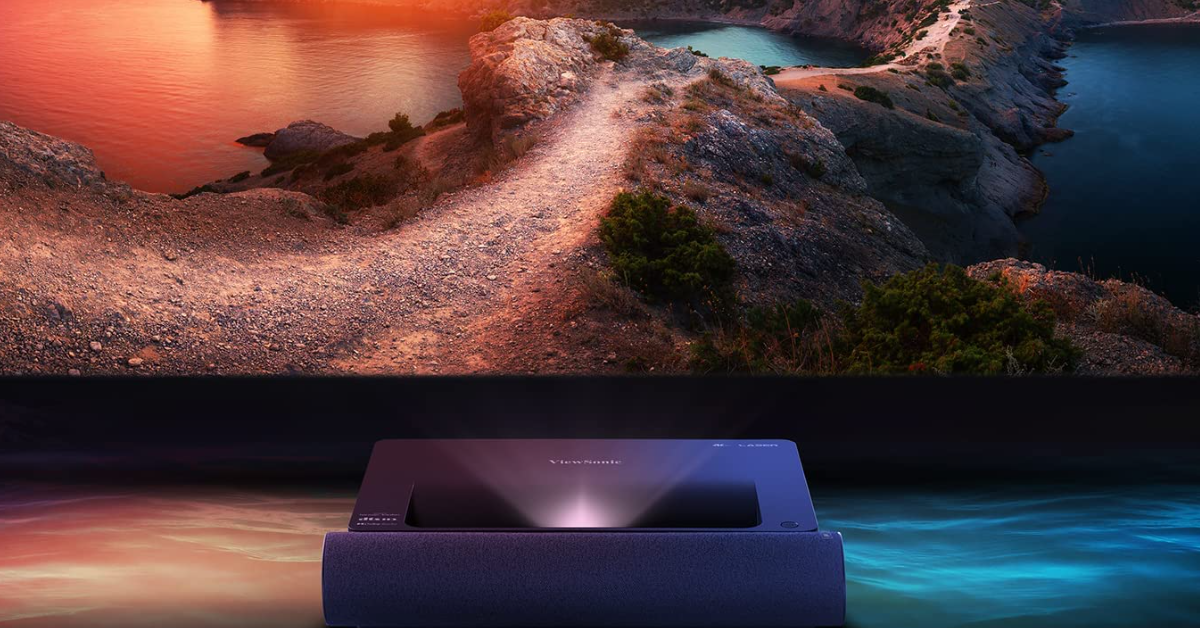
Resolution
Home projectors now offer many high-resolution options and support the latest video standards like HDR. They are just as good as our HDTVs. This means they are comparable to most standard TVs today.
However, there is a caveat. Projectors with 4K resolution and comparable image quality are considerably pricier than their TV counterparts. They typically start at around $1500 while you can find a 4K TV for less than $500.
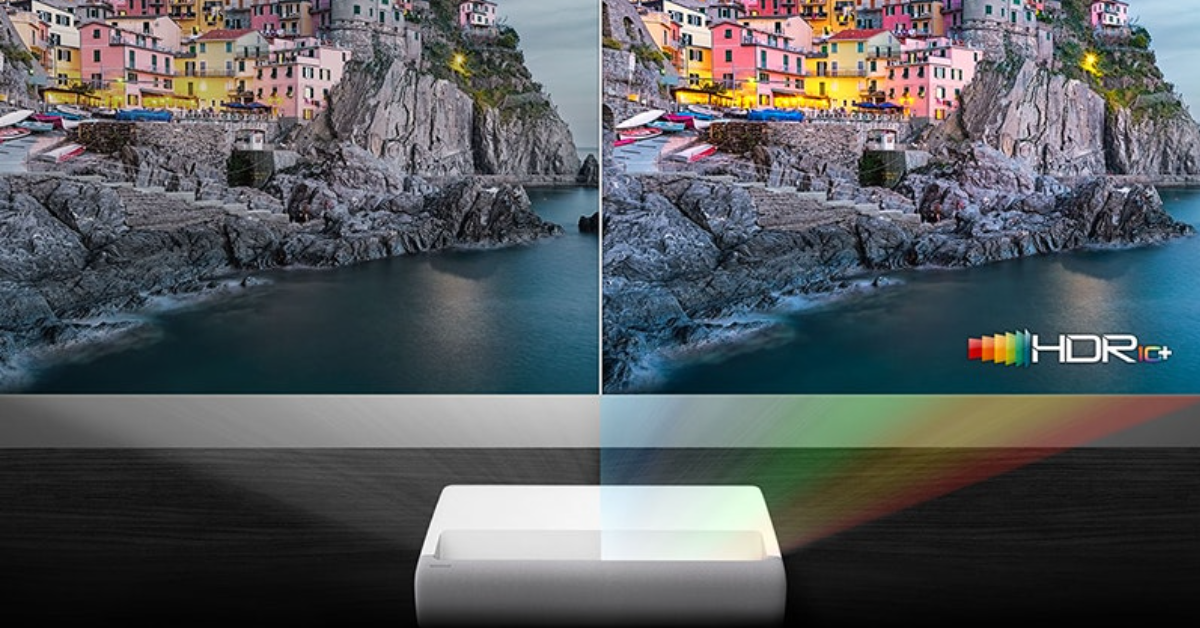
Installation
The short answer is that TVs are easier to install. Of course, larger TVs may require more effort, especially if you want to mount it on the wall. But in a larger number of them, it doesn't take much effort.
Projectors, on the other hand, can sometimes be tricky, requiring more planning and effort to install. You have to be sure that you have the necessary space for the projection. Also, consider whether you want to shine on the wall or whether you need to buy a special screen.
Although short throw projectors nowadays make the connection and installation much easier.
In addition to all this, you will definitely need to check if the projector has all the connection outputs you need, such as HDMI. Many projectors now offer basic connection methods and auxiliary methods such as Bluetooth. Therefore, laser projectors are increasingly trying to compete with TVs in terms of ease of connection for both watching movies and playing games with game consoles.
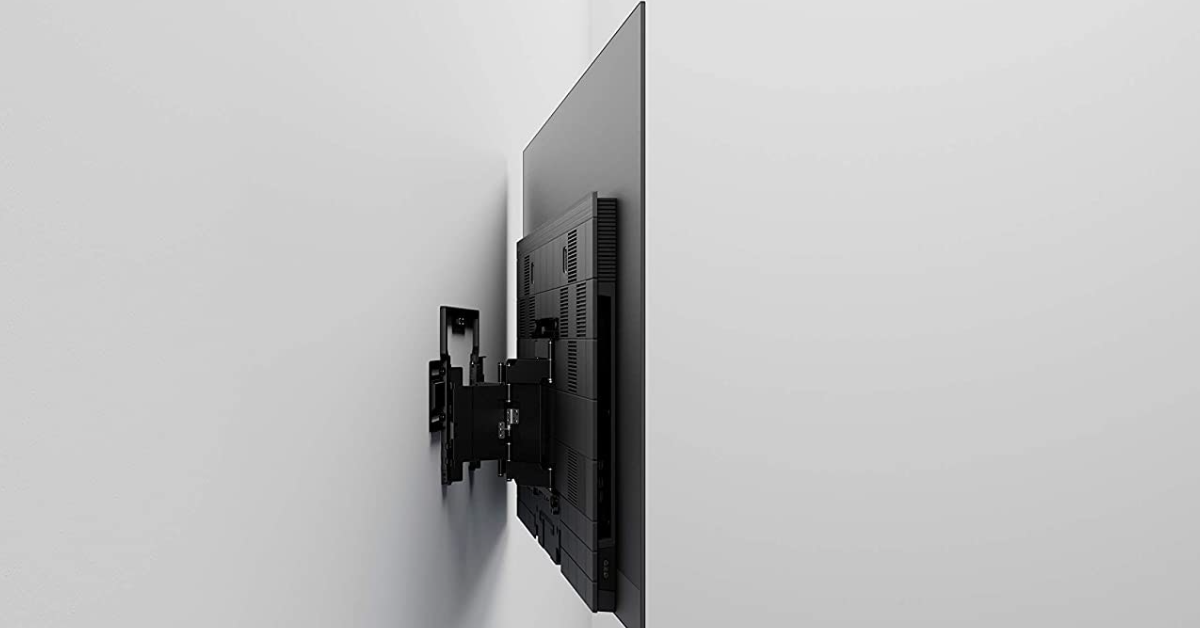
Sound quality
TVs are a better option primarily because they come with speakers that are generally better than the speakers that come with projectors. While some projectors do have speakers, they are usually not very loud.
However, it's important to note that external speakers, subwoofers, and soundbars are there for a reason. While many TVs offer decent sound quality, their primary function is to show video. For an optimal home theater experience, whether you're using a TV or a projector, it's important to invest in a reliable sound system.
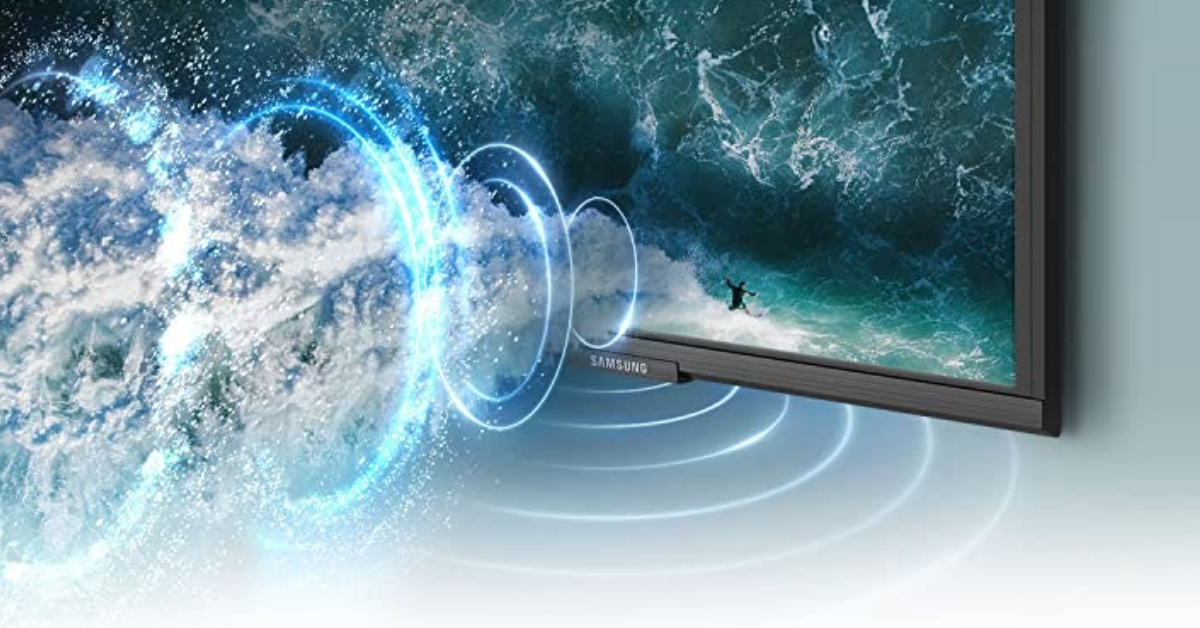
Portability
Certain projector models have the advantage of being compact in size, allowing for easy mobility. In addition, if they are not mounted to the ceiling, they can be easily moved to different locations.
Modern TVs often lack the versatility to be used outdoors, and if you want to use them outdoors, you will have to purchase a weatherproof TV model that has strict placement restrictions and a higher price tag.
Just so you know, if interesting projector models are what you're after, here are our six best picks for 2026:
- Excellent 4K image quality
- Stylish and premium design
- Affordable price
- Intelligent screen adaptation technology
- Powerful and high-quality Harman Kardon speakers
- Android TV 10.0 with a rich selection of applications and functions
- Short-throw projection ideal for small spaces
- 4K resolution with low input lag
- Android TV integration
- Compatible with major gaming consoles
- Easy setup with flexible image adjustment features
- 4K UHD resolution with 3,300 lumens
- Long-lasting light source up to 20,000 hours
- HDR compatibility and SuperColor technology
- Flexible connectivity with HDMI, USB, and more
- 3D Blu-ray ready with 360-degree orientation
- Decent 480p image quality with support for HDR10
- Simple and compact design
- Portability and long battery life
- Dolby Digital Plus and Dolby Atmos
- Android 7.1 with sufficient choice of apps and features
- Highly portable with 180-degree rotation
- Auto Leveling, Focus, and Keystone
- Access to a wide range of smart entertainment options
- Dedicated Gaming Hub
- Immersive 360-degree audio with external audio connectivity options
- Ultra-short throw design
- Laser light source for long-lasting and bright performance
- Built-in soundbar with Dolby Digital 2.0
- Smart TV interface with voice control and streaming apps
Advantages and Disadvantages of a Laser Projector
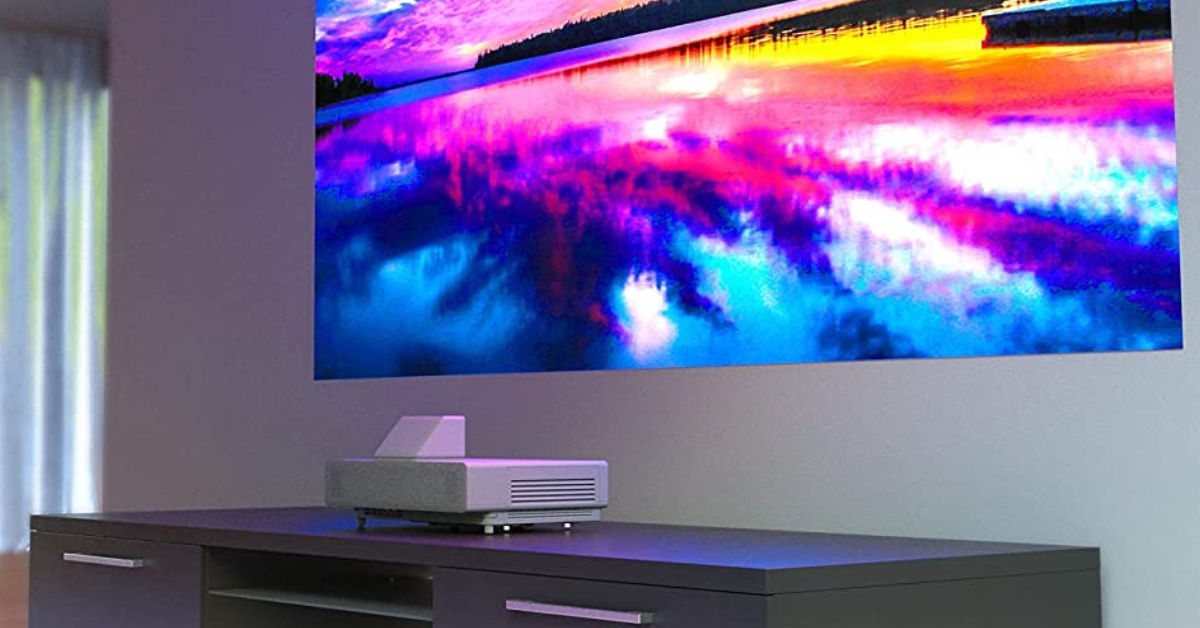
A laser projector is an innovative device that creates vivid images using lasers rather than traditional lamps. Laser projectors are bright, have a long lifespan, and provide accurate color reproduction with resolutions up to 4K.
Laser projectors come in a variety of sizes, colors, and designs, as you can see in our article on the best laser projectors. There are projectors for every design and budget.
Laser projectors have their own unique set of advantages and disadvantages.
Here are some of the advantages and disadvantages of a laser projector compared to a TV:
Pros of a laser projector:
- Large screen size: Laser projectors can project a much larger image size than a TV.
- Portability: Some laser projectors are portable and can be taken with you to different places.
- Brightness: Laser projectors can be brighter than TVs in brightly lit rooms or outdoors.
Cons of a laser projector:
- Price: Laser projectors can be expensive.
- Space requirements: Laser projectors require a dedicated space for optimal viewing.
- Sound quality: Some laser projectors have built-in speakers, but the sound quality may not be as good as a TV.
- Image quality: Laser projectors may not provide the same level of picture quality as high-end TVs, especially in terms of contrast and black levels.
Advantages and Disadvantages of a TV

Today, there are several types of TVs on the market, including LED/LCD TVs, OLED TVs, QLED TVs, Smart TVs, and 4K/UHD TVs.
Although LED/LCD TVs have lower image quality and cannot compete with laser projectors, OLED TVs, for example, will be strong competitors due to their high image quality.
Here are some of the advantages and disadvantages of TVs compared to laser projectors:
Pros of the TV:
- Picture quality: The TVs deliver excellent picture quality with vivid colors, deep blacks and high contrast.
- Versatility: TVs can be used in any room and can be mounted on walls or placed on stands.
- Sound quality: TVs have good built-in speakers and can be connected to a soundbar or home theater for optimal sound quality.
- Price: TVs are available at a range of prices, making them more affordable for a wider range of consumers.
Cons of the TV:
- Screen size: TVs have a limited screen size, usually between 32 and 85 inches.
- Viewing angle: The picture quality on a TV can deteriorate when viewed from an angle.
- Brightness: TVs may not be as bright in brightly lit rooms.
FAQ about 4K Laser Projector vs Oled TV
Here are some frequently asked questions about the difference between laser projectors and TVs:
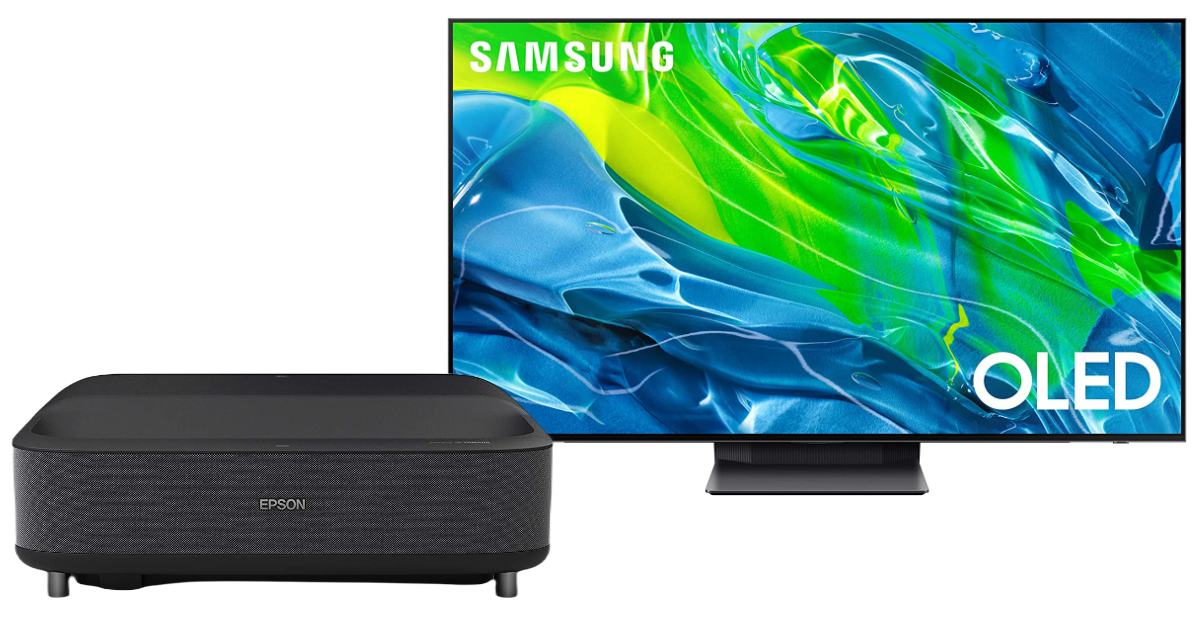
What are the benefits of a 4K laser projector?
A 4K laser projector offers improved contrast and color depth in addition to higher brightness than traditional projectors. It also provides a large image projection, making it ideal for home theaters and large conference rooms.
What is the difference between a 4K laser projector and an OLED TV?
A 4K laser projector delivers a large and immersive image, while an OLED TV displays vivid colors and dark blacks.
What are the benefits of OLED TVs?
OLED TVs offer superior picture quality. They are more responsive to video games than most projectors, and their slim profile provides a greater immersive experience.
Are laser projectors better than TVs?
The choice between a laser projector and a TV depends on your individual preferences and budget, as each has its own advantages.
Laser Projector or TV: Conclusion
There are advantages and disadvantages to using a laser projector and a TV. A laser projector is a more efficient technology, allowing for larger images with less power consumption. However, televisions are a more advanced technology with better color accuracy and resolution.
To choose the right technology, consider your specific needs, as well as cost, room size, and viewing preferences. Each technology has its advantages, so it's important to analyze these factors before making a decision.
You may also like:
